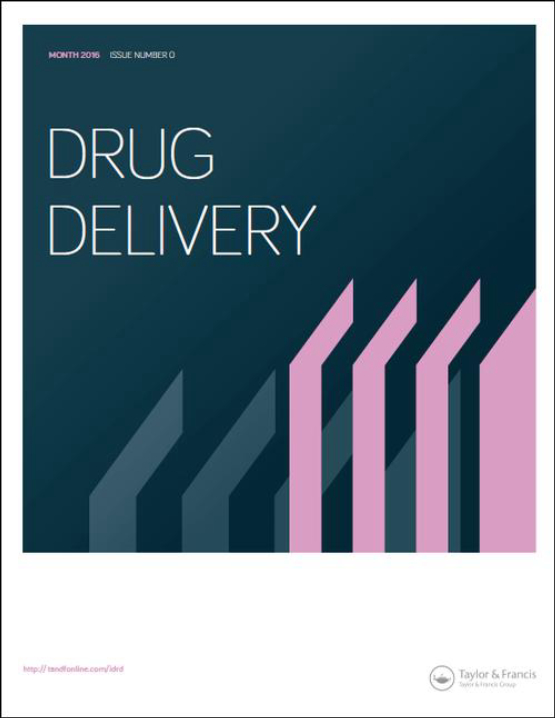Submit a Manuscript to the Journal
Drug Delivery
For an Article Collection on
Targeted Protein Degradation for Drug Development and Delivery
Manuscript deadline


Article collection guest advisor(s)
Dr. Zongtao Lin,
Washington University in St Louis
zongtao@wustl.edu
Dr. Yufeng Xiao,
University of Florida
yufengxiao@cop.ufl.edu
Dr. Dongwen Lyu,
University of Texas Health San Antonio
lyud@uthscsa.edu
Targeted Protein Degradation for Drug Development and Delivery
Targeted protein degradation (TPD) represents a transformative approach in drug discovery, shifting the paradigm from traditional inhibition to selective degradation of disease-causing proteins. Proteolysis targeting chimeras (PROTACs), among other emerging technologies, offer promising avenues to modulate previously "undruggable" targets by harnessing the cell's natural protein degradation machinery. This collection will explore the degrader developments as they reshape the landscape of therapeutic intervention and drug delivery.
Degraders have the potential to revolutionize the treatment of diseases with high unmet medical needs, such as cancer, neurodegenerative disorders, and autoimmune conditions. Unlike traditional small-molecule inhibitors that require continuous occupancy to suppress protein function, TPD techniques irreversibly remove target proteins from the cell. This irreversible effect translates to higher potency, reduced off-target toxicity, and the ability to target proteins previously inaccessible to drug development. As the field advances, new challenges and opportunities arise, making TPD an essential area of research for the future of precision medicine and more effective therapies.
This collection invites contributions that advance the application of TPD for drug development and delivery. Topics of interest include but are not limited to: the design and optimization of degraders, E3 ligase engagement and selectivity, novel degradation platforms, activity evaluation using cell or animal models, and therapeutic degraders delivery. Both original research and review articles are invited, providing insights into the latest TPD innovations, preclinical and clinical applications, and the development of delivery systems tailored to enhance the therapeutic potential of degraders. By showcasing research at the intersection of pharmacology, drug discovery, and drug delivery, this collection aims to foster dialogue and discovery in this rapidly evolving field.
All submissions to this Article Collection could enjoy a 10% discount on article publishing charges by using the code IDRD-2025-C33750.
Please contact Haoyang Yi (Commissioning Editor) at haoyang.yi@taylorandfrancis.com with any queries regarding this Article Collection.
Guest Advisors
Dr. Zongtao Lin
Dr. Zongtao Lin earned his PhD in Medicinal Chemistry from the University of Tennessee and did postdoc training in activity-based protein profiling (ABPP) at the University of Pennsylvania. He is now an Instructor at Washington University School of Medicine where he studies the proteomics discovery and druggability of post-translational arginylation. His research has been funded by both internal and NIH grants.
Dr. Yufeng Xiao
Dr. Yufeng Xiao earned his PhD from the Chinese Academy of Sciences and received postdoctoral training at the University of Florida. His research interest is in medicinal chemistry and drug discovery to develop small molecular inhibitors, degraders, and probes. His recent focus is on target protein degradation (TPD) to develop PROTACs, molecular glue, and proximity-inducing modalities as novel therapeutics.
Dr. Dongwen Lyu
Prof. Dongwen Lyu is an Assistant Professor in the Department of Biochemistry and Structural Biology at UT Health San Antonio. His research interests include 1) studying cellular protein function and manipulation in degradation pathways and 2) cellular and molecular mechanisms of aging. He has secured funding from NIH and other internal and external funding agencies to support his research in the lab.
Benefits of publishing open access within Taylor & Francis
Global marketing and publicity, ensuring your research reaches the people you want it to.
Article Collections bring together the latest research on hot topics from influential researchers across the globe.
Rigorous peer review for every open access article.
Rapid online publication allowing you to share your work quickly.
Submission Instructions
All manuscripts submitted to this Article Collection will undergo desk assessment and peer-review as part of our standard editorial process. Guest Advisors for this collection will not be involved in peer-reviewing manuscripts unless they are an existing member of the Editorial Board. Please review the journal Aims and Scope and author submission instructions prior to submitting a manuscript.

